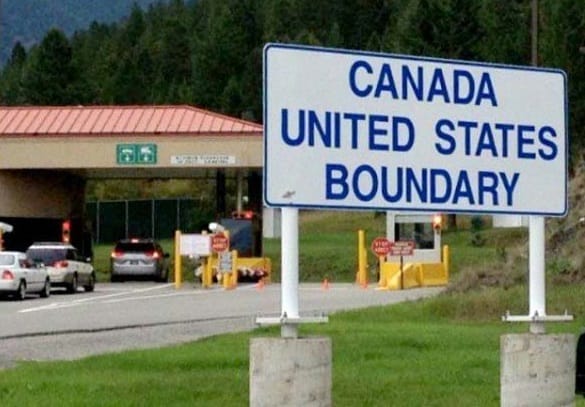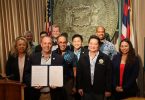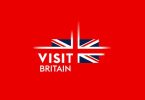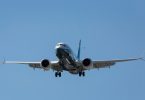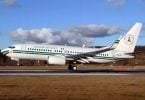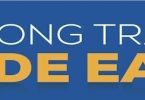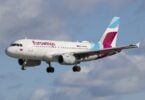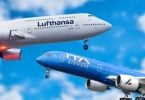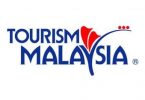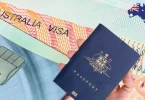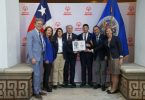Agenția pentru Serviciile de Frontieră din Canada (CBSA) reamintește tuturor călătorilor care trec granița în acest weekend lung de Ziua Muncii la ce să se aștepte la graniță în lunile aglomerate de vară, indiferent dacă se întorc acasă în Canada sau vizitează.
În această vară, călătorii se întorc la o frontieră care este gestionată diferit, cu cerințe în evoluție privind COVID-19, ceea ce poate însemna întârzieri în perioadele de vârf.
CBSA lucrează cu partenerii guvernamentali și din industrie pentru a atenua timpii lungi de așteptare la frontieră, dar există și lucruri pe care călătorii le pot face pentru a ușura procesul pentru ei înșiși și pentru alți călători.
Călătorii pot contribui la reducerea timpilor de așteptare la frontieră, venind pregătiți și completând depunerea lor obligatorie ArriveCAN cu 72 de ore înainte de a ajunge la graniță. Peste 1.4 milioane de călători au folosit cu succes aplicația ArriveCAN săptămâna trecută.
ASFC investește un efort semnificativ anual pentru a planifica și a se pregăti pentru perioadele de vârf, cum ar fi lunile de vară. Agenția lucrează cu operatorii de poduri și tuneluri, autoritățile aeroportuare și grupurile din industria de turism pentru a planifica și revizui cerințele de servicii, oportunitățile de îmbunătățire și resursele necesare, astfel încât să putem oferi împreună cele mai bune servicii tuturor călătorilor.
CBSA a stabilit, de asemenea, procese moderne pentru a îmbunătăți experiența călătorilor și pentru a gestiona volume, cum ar fi programele Internațional-intern și Internațional-Internațional care scad semnificativ timpul de conectare, precum și Chioșcurile de inspecție primară și caracteristica Declarație prealabilă CBSA în cadrul ArriveCAN.
Sfaturi cheie pentru toți călătorii:
- Ensure you are eligible to enter Canada. Foreign nationals must meet the admissibility requirements under the Immigration and Refugee Protection Act and provide appropriate travel and immigration documentation. Admissibility decisions on entry are made by a border services officer at the port of entry.
- Understand the rules around COVID-19. There are still border measures in place for COVID-19. They vary depending on who is travelling—foreign nationals, returning residents or Canadian citizens. Answer a few questions to find out which requirements apply to you and if you can enter Canada.
- Utilizare SosireCAN. Whether you are traveling by air, land or marine, all travelers, regardless of vaccination status, are required to submit their information in ArriveCAN (free as a mobile app or by accessing it on the CBSA website), up to 72 hours before entering Canada. ArriveCAN collects contact, health and travel information to protect the health and safety of travelers and expedite processing at the border. It is the fastest, easiest and most secure way for travelers to show they meet public health requirements.
- Travelers must ensure they have the most up-to-date version of the ArriveCAN app (consult the Google Play Store or the App Store for iPhone).
- Travelers should print or take a screenshot of their ArriveCAN receipt and bring it with them when they travel.
- Travellers without a smartphone or without mobile data can submit their information by signing in online through a computing device. If you use this website option, the technology ensures that your internet connection to ArriveCAN is secure. If travelers are unable to enter their information themselves, they can have a friend or family member enter the information for them.
- Advance Declaration feature. Air travelers landing in Toronto (YYZ), Vancouver (YVR) and Montreal (YUL) airports, may use this feature in ArriveCAN (app or Web version) to complete their customs and immigrations declaration in advance of their arrival in Canada. Early usage data indicates that using the optional Advance CBSA Declaration cuts the amount of time a traveler spends at a kiosk by roughly one third. This feature will also become available at the Calgary, Edmonton, Winnipeg, Billy Bishop Toronto City, Ottawa, Québec City and Halifax international airports in the coming months.
- Have all your documents ready. Travellers must have the following ready to present to the border services officer: their passport or travel documents and identification for all persons in the vehicle. You may also be asked to present your ArriveCAN receipt and proof of vaccination.
- Plan ahead and check border wait times. Travellers crossing the border by land are encouraged to plan to cross during non-peak hours, such as early morning. The Monday of holiday long weekends tends to be the busiest, with longer border wait times.
- Entering Canada by water. Unless exempt, all travelers entering Canada by water, must report their arrival to the CBSA without delay. All travelers, including those with a right of entry (Canadian citizens, permanent residents and persons registered under the Indian Act), must submit their mandatory information in ArriveCAN before, or when, entering Canada at a marine port of entry.
- Be prepared to declare. Travelers returning to Canada must declare all goods purchased and/or received while outside the country. It is recommended that gifts not be wrapped as CBSA officers may need to examine them. Have your receipts readily available from purchases made outside of Canada.
- Know your exemption limits. Returning residents planning to make purchases or pick up online purchases across the border should be aware of their exemption limits. Be sure to check the CBSA duty and taxes estimator to calculate taxes on goods purchased in the United States and to help make informed decisions when shopping abroad.
- Residents can bring back tax- and duty-free goods valued at CAN$200 after being away for 24 hours, and goods valued at CAN$800 after 48 hours. There are no personal exemptions for same-day cross-border shopping trips, so be prepared to pay tax on those purchases and possibly duty. Alcohol and tobacco allowances may also vary depending on your length of absence from Canada.
- Declare any foods, plants, or animals such as raw poultry products and by-products that are not fully cooked, to the border services officer. There are currently restrictions on imports of live birds, bird products and by-products from states affected by Highly Pathogenic Avian Influenza in the United States. Also declare all wood and wood products (including. firewood and wooden souvenirs). Be sure to check the Automated Import Reference System to help determine all specific import requirements.
- Declare all currency and/or monetary instruments of CAN$10,000 or more. It is not illegal to bring such amounts into Canada, but it must be declared on arrival.
- Cannabis. Don’t bring it in. Don’t take it out. Transporting cannabis across the border in any form, including any oils containing tetrahydrocannabinol (THC) or cannabidiol (CBD), without a permit or exemption authorized by Health Canada remains a serious criminal offence subject to arrest and prosecution, despite the legalization of cannabis in Canada.
- Know the contents of your vehicle. Travellers can consult the CBSA’s website for information on firearms and other restricted and prohibited goods.
- Use the latest technology. Upon arrival at selected major airports in Canada, travelers can use a primary inspection kiosk or eGates to verify their travel documents, confirm their identity and complete an on-screen declaration.
- Copii. When traveling with children, it is recommended that the accompanying adult have a consent letter authorizing them to travel with the child. Border services officers are always watching for missing children, and in the absence of the letter, officers may ask additional questions, to help them identify the relationship between the child and the accompanying adult.

